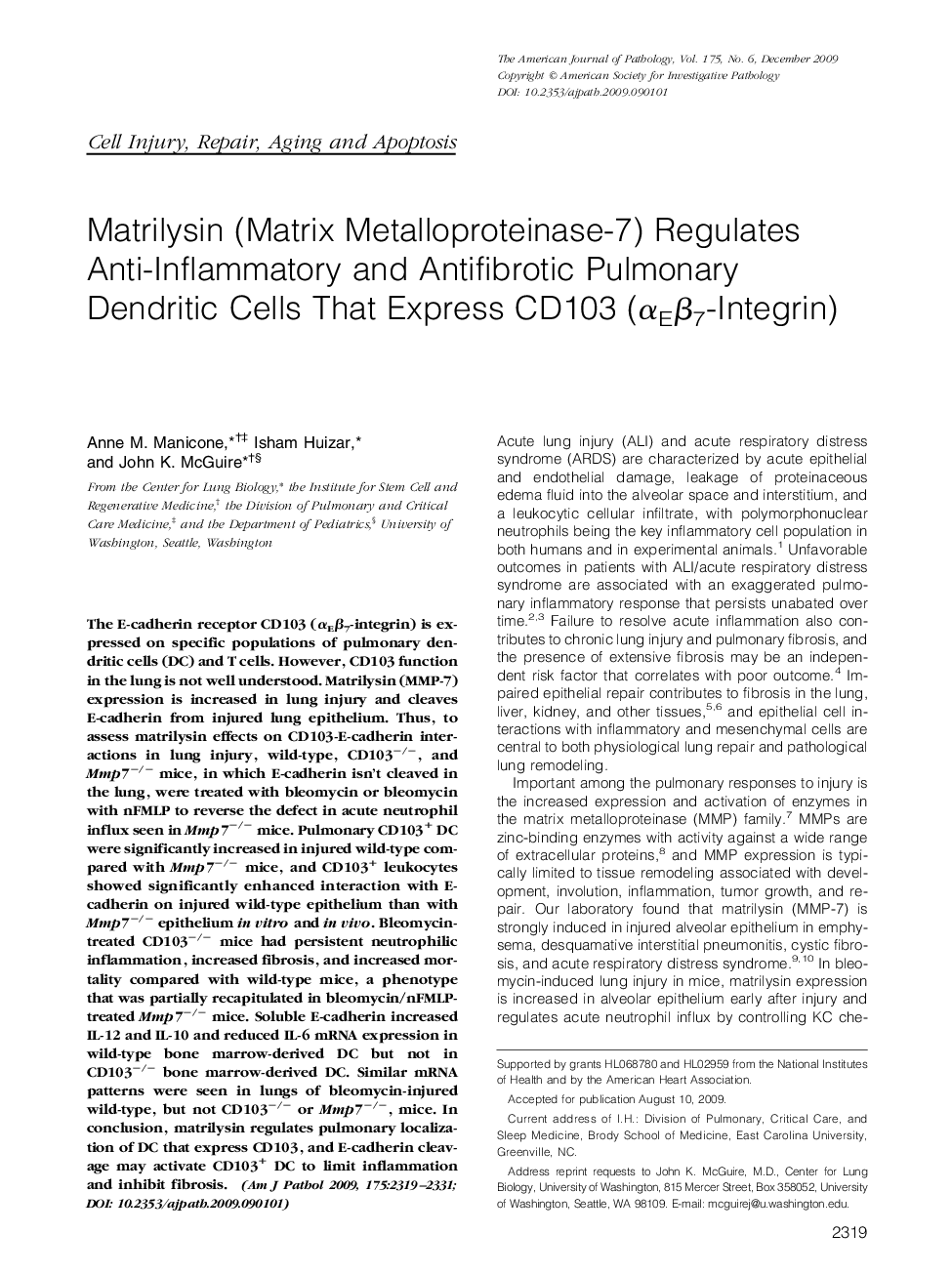| Article ID | Journal | Published Year | Pages | File Type |
|---|---|---|---|---|
| 5936381 | The American Journal of Pathology | 2009 | 13 Pages |
The E-cadherin receptor CD103 (αEβ7-integrin) is expressed on specific populations of pulmonary dendritic cells (DC) and T cells. However, CD103 function in the lung is not well understood. Matrilysin (MMP-7) expression is increased in lung injury and cleaves E-cadherin from injured lung epithelium. Thus, to assess matrilysin effects on CD103-E-cadherin interactions in lung injury, wild-type, CD103â/â, and Mmp7â/â mice, in which E-cadherin isn't cleaved in the lung, were treated with bleomycin or bleomycin with nFMLP to reverse the defect in acute neutrophil influx seen in Mmp7â/â mice. Pulmonary CD103+ DC were significantly increased in injured wild-type compared with Mmp7â/â mice, and CD103+ leukocytes showed significantly enhanced interaction with E-cadherin on injured wild-type epithelium than with Mmp7â/â epithelium in vitro and in vivo. Bleomycin-treated CD103â/â mice had persistent neutrophilic inflammation, increased fibrosis, and increased mortality compared with wild-type mice, a phenotype that was partially recapitulated in bleomycin/nFMLP-treated Mmp7â/â mice. Soluble E-cadherin increased IL-12 and IL-10 and reduced IL-6 mRNA expression in wild-type bone marrow-derived DC but not in CD103â/â bone marrow-derived DC. Similar mRNA patterns were seen in lungs of bleomycin-injured wild-type, but not CD103â/â or Mmp7â/â, mice. In conclusion, matrilysin regulates pulmonary localization of DC that express CD103, and E-cadherin cleavage may activate CD103+ DC to limit inflammation and inhibit fibrosis.
